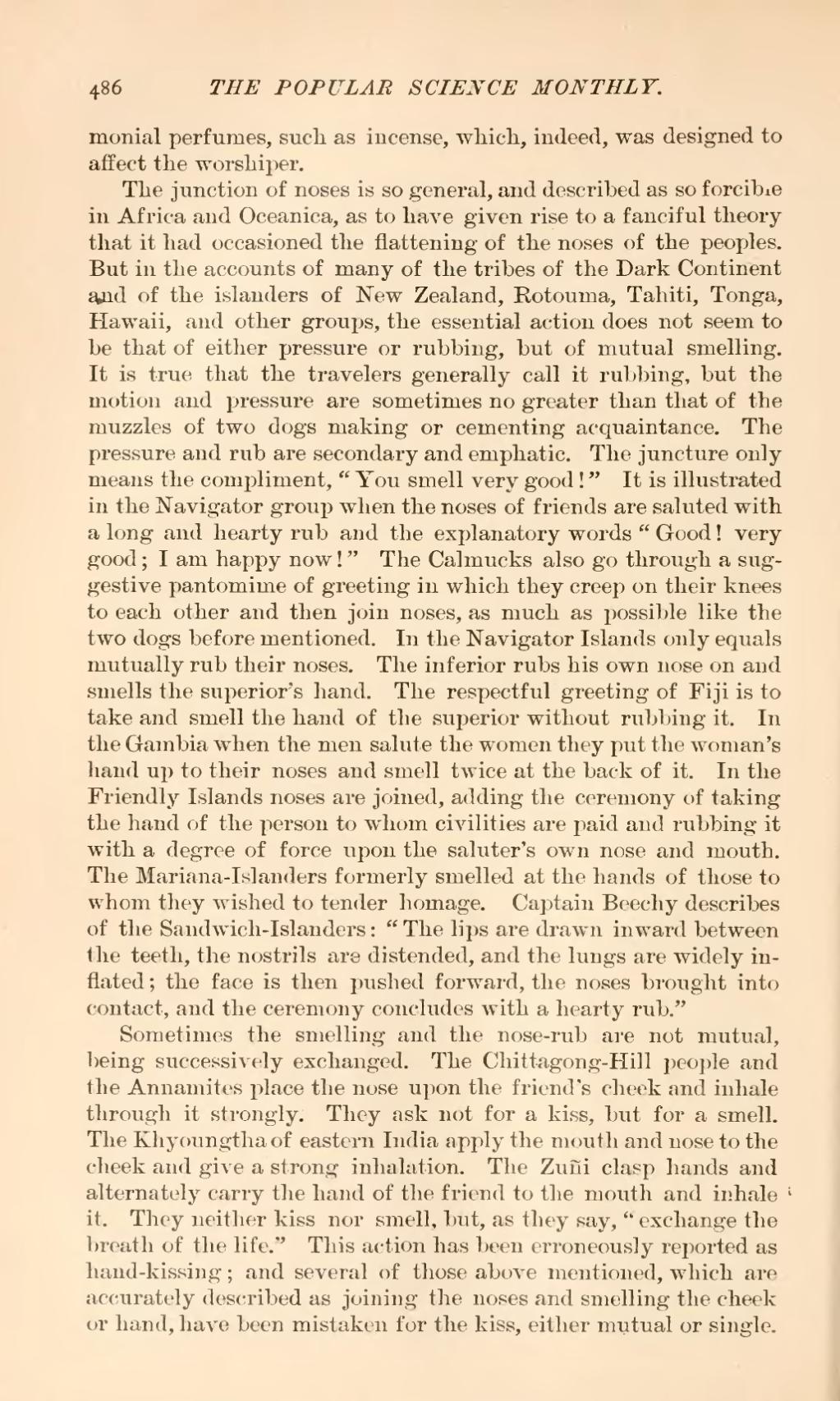monial perfumes, such as incense, which, indeed, was designed to affect the worshiper.
The junction of noses is so general, and described as so forcible in Africa and Oceanica, as to have given rise to a fanciful theory that it had occasioned the flattening of the noses of the peoples. But in the accounts of many of the tribes of the Dark Continent ajid of the islanders of New Zealand, Rotouma, Tahiti, Tonga, Hawaii, and other groups, the essential action does not seem to be that of either pressure or rubbing, but of mutual smelling. It is true that the travelers generally call it rubbing, but the motion and pressure are sometimes no greater than that of the muzzles of two dogs making or cementing acquaintance. The pressure and rub are secondary and emphatic. The juncture only means the compliment, "You smell very good!" It is illustrated in the Navigator group when the noses of friends are saluted with a long and hearty rub and the explanatory words "Good! very good; I am happy now!" The Calmucks also go through a suggestive pantomime of greeting in which they creep on their knees to each other and then join noses, as much as possible like the two dogs before mentioned. In the Navigator Islands only equals mutually rub their noses. The inferior rubs his own nose on and smells the superior's hand. The respectful greeting of Fiji is to take and smell the hand of the superior without rubbing it. In the Gambia when the men salute the women they put the woman's hand up to their noses and smell twice at the back of it. In the Friendly Islands noses are joined, adding the ceremony of taking the hand of the person to whom civilities are paid and rubbing it with a degree of force upon the saluter's own nose and mouth. The Mariana-Islanders formerly smelled at the hands of those to whom they wished to tender homage. Captain Beechy describes of the Sandwich-Islanders: "The lips are drawn inward between the teeth, the nostrils are distended, and the lungs are widely inflated; the face is then pushed forward, the noses brought into contact, and the ceremony concludes with a hearty rub."
Sometimes the smelling and the nose-rub are not mutual, being successively exchanged. The Chittagong-Hill people and the Annamites place the nose upon the friend's cheek and inhale through it strongly. They ask not for a kiss, but for a smell. The Khyoungtha of eastern India apply the mouth and nose to the cheek and give a strong inhalation. The Zuñi clasp hands and alternately carry the hand of the friend to the mouth and inhale it. They neither kiss nor smell, but, as they say, "exchange the breath of the life." This action has been erroneously reported as hand-kissing; and several of those above mentioned, which are accurately described as joining the noses and smelling the cheek or hand, have been mistaken for the kiss, either mutual or single.

